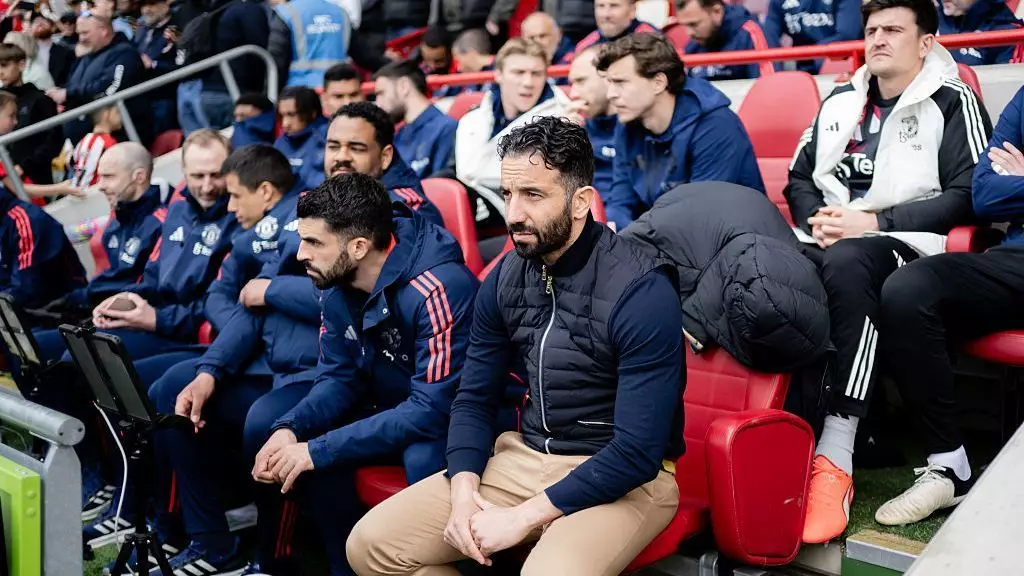In an audacious move that underscores a shift in strategy, Manchester United’s manager, Ruben Amorim, recently fielded the club’s youngest Premier League lineup during a thrilling yet disappointing 4-3 defeat against Brentford. With an average age of just 22, the decision to prioritize youth over experience in the face of dwindling Premier League prospects has sparked significant discussions among fans and analysts alike. Should a club of United’s stature experiment in the midst of a challenging season? Amorim believes so, strategically diverting focus towards the Europa League campaign, where they currently lead Athletic Bilbao 3-0 ahead of a crucial semi-final match.
The Risks of Prioritizing European Glory
It’s a bold gamble indeed, resigning the club to a woeful 15th place in the English Premier League while simultaneously aiming for continental success. Amorim’s assertion that the primary aim is to ready a squad for multiple competitions reflects a broader trend sweeping across football – the emphasis on developmental strategies over immediate results. The loss marked United’s 16th in the Premier League, a stark reminder that the club’s domestic ambitions are all but extinguished. But what does this say about the club’s legacy and its hunger for trophies? Critics argue that a club with Manchester United’s history should never prioritize one competition over another, regardless of the circumstances.
Youth: The Future of Manchester United?
With seasoned players relegated to the bench in favor of emerging talents, there are undoubtedly long-term benefits to the influx of youth. Amorim himself emphasizes that this approach is not merely experimental; it’s foundational. It’s about building resilience within the squad, allowing younger players to gain invaluable experience and gradually adapt to the rigors of top-flight football. Stars like Mason Mount echo this sentiment, indicating that winning the Europa League has become paramount in salvaging the season and restoring pride. However, can these young players endure the pressure of high-stakes games without the cushion of experienced teammates?
Balancing Act: The Thin Line Between Failure and Success
For Amorim, the stark reality is that United may not be prepared to contend for a Champions League place next season, which raises the stakes even higher on the European front. The strategy leaves little room for error; failure to clinch the Europa League could crash aspirations for next season’s elite European competition and further strain fan relations. It is a perilous balancing act, where the lessons learned from high-profile matches could desensitize young players to the rigors of Premier League football, potentially holding them back in the long run.
Fan Expectations and Emotional Investment
What remains pivotal is the emotional investment of the fan base. Winning the Europa League, albeit a viable target, must also resonate with spectators who have witnessed the team’s decline. The criticisms surrounding Amorim’s youth-driven approach are enveloped in a larger narrative that captures the essence of what it means to support a historic club like Manchester United. Admirably, the manager is attempting to breathe new life into the squad, but the pathway to sustainable success is riddled with trials that weigh heavily on collective aspirations. As emotions run high, the question looms: Can Sparta rise again or is it simply a transition phase while ambitions morph into tangible results?

